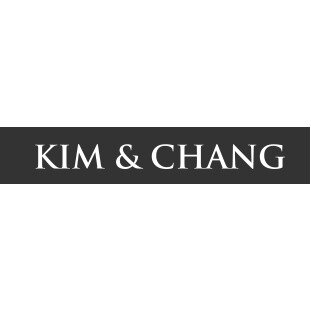Best Water Law Lawyers in South Korea
Share your needs with us, get contacted by law firms.
Free. Takes 2 min.
Or refine your search by selecting a city:
List of the best lawyers in South Korea
About Water Law in South Korea
Water Law in South Korea refers to the range of legal principles, statutes, regulations, and policies that govern the use, management, and protection of water resources throughout the country. Water is a vital resource in South Korea due to the nation's population density, industrial growth, and urbanization. The government regulates everything from the allocation of water rights and the prevention of water pollution to the management of river basins, dams, and wastewater. Key legal frameworks include the Framework Act on Water Management and various specific laws addressing water quality, river use, and flood control.
Why You May Need a Lawyer
Individuals and businesses may require legal assistance in Water Law for a number of reasons. Common situations include:
- Ownership or usage disputes over river, stream, or groundwater resources
- Land development projects that may affect water rights or require environmental permits
- Compliance with water quality or pollution control regulations
- Issues arising from public works, such as dam constructions or water diversion projects
- Litigation involving flooding, water damage, or contamination claims
- Negotiating water access and usage agreements for agricultural, industrial, or municipal purposes
- Understanding obligations during emergencies such as droughts or floods
A lawyer specializing in Water Law can help navigate complex government regulations, represent clients in negotiations or disputes, and ensure compliance to avoid costly fines or legal actions.
Local Laws Overview
South Korea's Water Law framework involves several important statutes and administrative measures:
- Framework Act on Water Management: Establishes national policy for the conservation and sustainable use of water resources
- River Act: Governs the management of rivers, river basin planning, and flood control
- Water Supply and Waterworks Installation Act: Addresses the supply of water to communities, waterworks construction, and safety standards
- Clean Water Act: Focuses on water quality maintenance, regulatory standards for pollution, and mechanisms for enforcement
- Groundwater Act: Regulates the extraction and use of groundwater, including measures against overuse
- Special Act on the Improvement of Water Quality and Support for Residents of the Han River, Nakdong River, Geum River, and Yeongsan River Systems: Provides for regional management of major basins with targeted environmental protection programs
Local governments often implement their own supplemental regulations and permits, especially concerning local waterways or development activities. Violations can carry administrative, civil, or criminal penalties.
Frequently Asked Questions
What is considered a water right in South Korea?
A water right refers to the legal entitlement to use a certain quantity of surface or groundwater, subject to allocation and licensing by authorities. Most significant uses require government approval.
Do I need a permit to use river or stream water on my property?
Yes, both individuals and businesses usually require permits for diverting, storing, or withdrawing water from rivers or streams, regardless of property ownership. Unauthorized use can result in penalties.
Who is responsible for water pollution control?
Responsibility is shared among the central government, local authorities, and water users. Major industries, agriculture, and municipalities must comply with strict standards under the Clean Water Act.
Can water use be restricted during droughts?
Yes, during droughts or other emergencies, water authorities have the power to limit water usage, prioritize supply to essential services, and temporarily suspend some existing rights.
If my property is flooded, can I claim compensation?
Compensation may be available if the flooding was caused by government action or third-party negligence, but claims often require legal evidence and guidance by a qualified lawyer.
How are river boundaries and rights determined?
River boundaries are mapped and managed under the River Act, and any changes such as rerouting or bank work require approval by relevant authorities.
What happens if I am accused of polluting water?
You could face administrative penalties, criminal prosecution, and civil liability. Immediate legal advice is crucial to address such accusations and ensure your rights are protected.
Are there special rules for industrial water use?
Industries, particularly those discharging wastewater, face additional regulatory requirements for permits, discharge limits, and environmental impact assessments.
Is rainwater harvesting regulated?
Rainwater harvesting for personal or small-scale use is generally encouraged, but large-scale or commercial installations may require permits, especially where they impact runoff or neighboring properties.
How can I report illegal water usage or pollution?
Reports can be made to local environmental or water management offices. Some waterways also have dedicated hotlines for public complaints.
Additional Resources
If you need more information or support, consider the following resources:
- Ministry of Environment: Oversees national water management policies and enforcement
- Korea Water Resources Corporation (K-water): Manages major public water supply and irrigation projects
- Local government environmental protection departments: Handle permits, inspections, and complaints
- Korea Environmental Law Association: Provides education and resources on environmental law, including water regulations
- Legal Aid Centers: Offer guidance or referrals for low-income individuals facing water law issues
Next Steps
If you believe you need legal assistance in Water Law, you should start by gathering relevant documentation, such as property records, water use permits, correspondence with authorities, and any evidence of disputes or damage. Contact a qualified lawyer specializing in environmental or water law to review your case. They can help you understand your rights, represent your interests in negotiations or court, and navigate complex regulatory requirements.
Most legal professionals offer initial consultations, which can help you determine the best course of action for your situation. Acting promptly can help safeguard your water rights, avoid costly fines, and resolve disputes effectively.
Lawzana helps you find the best lawyers and law firms in South Korea through a curated and pre-screened list of qualified legal professionals. Our platform offers rankings and detailed profiles of attorneys and law firms, allowing you to compare based on practice areas, including Water Law, experience, and client feedback.
Each profile includes a description of the firm's areas of practice, client reviews, team members and partners, year of establishment, spoken languages, office locations, contact information, social media presence, and any published articles or resources. Most firms on our platform speak English and are experienced in both local and international legal matters.
Get a quote from top-rated law firms in South Korea — quickly, securely, and without unnecessary hassle.
Disclaimer:
The information provided on this page is for general informational purposes only and does not constitute legal advice. While we strive to ensure the accuracy and relevance of the content, legal information may change over time, and interpretations of the law can vary. You should always consult with a qualified legal professional for advice specific to your situation.
We disclaim all liability for actions taken or not taken based on the content of this page. If you believe any information is incorrect or outdated, please contact us, and we will review and update it where appropriate.
Browse water law law firms by city in South Korea
Refine your search by selecting a city.
















